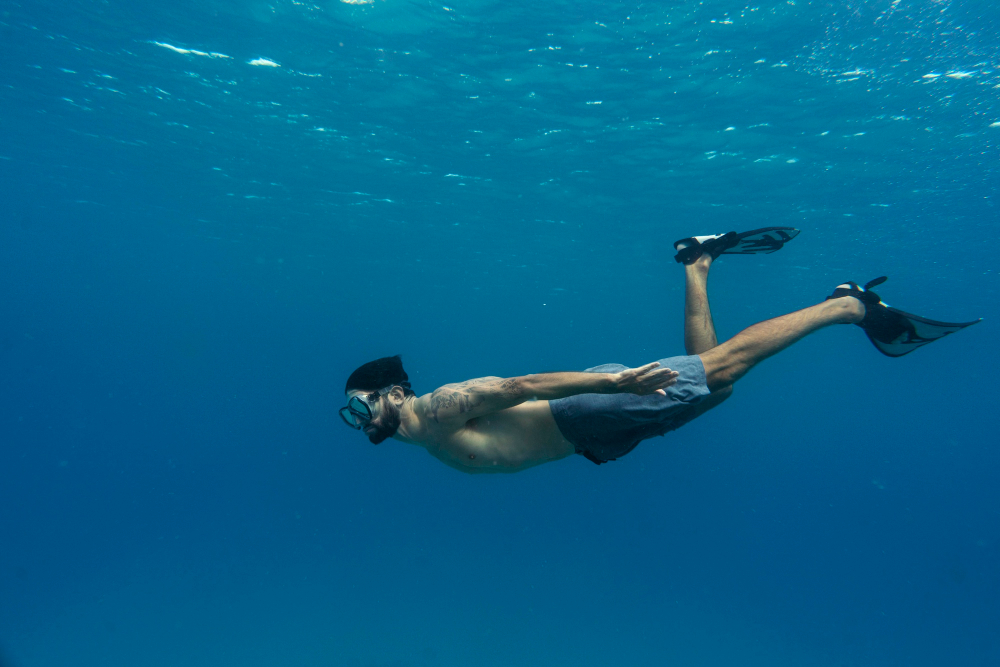Often, people learn to freedive by chance – maybe because they have the opportunity to do it following a scuba course or because the activity is recommended to them by a friend. Therefore, I will describe my freediving journey to help explain the true beauty of this incredibly sport which I hope will continue to grow in popularity as it has done over the past few years.
What exactly is freediving?
I believe that most people still do not know exactly what it is, so I’ll explain. Essentially, divers must hold their breath underwater until resurfacing rather than relying on scuba equipment to give them air. It therefore requires great physical discipline and dedication. One must be fully tuned into what they are doing in order to have a safe and enjoyable underwater session.
Learning the art
Like many others, I discovered freediving almost by accident. I lived in Liguria very close to the sea and spent my summer seasons either at the beach or watching performances by talented freedivers Enzo Majorca and Jacques Maiol on television. When I was just nine or ten years old, I loved to put on a mask and watch the fish swimming around the rocks – but what I liked best was the sense of freedom I felt in the ocean. The cool water on my skin; the silence all around me – it was incredible and this is where my passion for diving started.
At the age of 19, I had the opportunity to do a scuba course and although diving with cylinders didn’t interest me too much, it was the only serious way to learn. I did a CMAS course which is practically a military course applied to scuba diving. I learnt key techniques in swimming pools but back then not much was known about the “true” magic of freediving.
With time I became a passionate scuba diver and that passion quickly became a profession – but my love of freediving was always there, hidden in my head and heart. Whenever I had the chance I’d put on my fins and mask and submerge myself underwater without any cylinders.
And then it happened. After postponing year after year (for many different reasons – work, family life and such like) I decided that I wanted to teach freediving and share this different and wonderful way of enjoying the sea.
The beauty of freediving
Freediving does not mean being an underwater fisherman because this is only a “specialisation”. While spear fishing attracts many freedivers, the sport is much more complex. Free diving is all about self-control and finding inner peace. Relaxation techniques and breathing techniques not only make freediving possible but also help us not achieve that inner balance and calm that we often seek – but fail to find.
- Self-discovery and awareness
- Sharing underwater experiences
- Memories to last a lifetime
